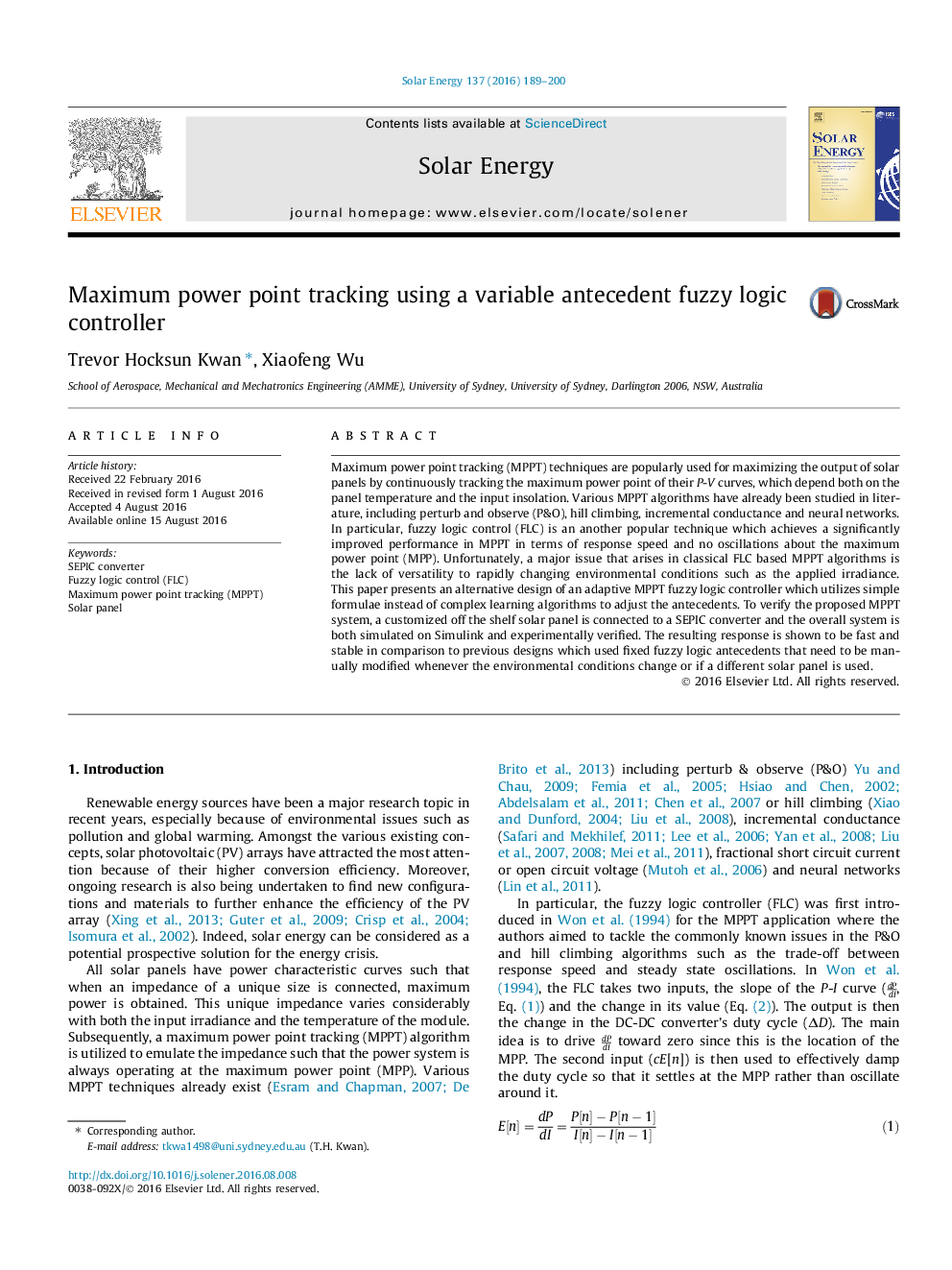| Article ID | Journal | Published Year | Pages | File Type |
|---|---|---|---|---|
| 1549238 | Solar Energy | 2016 | 12 Pages |
Abstract
Maximum power point tracking (MPPT) techniques are popularly used for maximizing the output of solar panels by continuously tracking the maximum power point of their P-V curves, which depend both on the panel temperature and the input insolation. Various MPPT algorithms have already been studied in literature, including perturb and observe (P&O), hill climbing, incremental conductance and neural networks. In particular, fuzzy logic control (FLC) is an another popular technique which achieves a significantly improved performance in MPPT in terms of response speed and no oscillations about the maximum power point (MPP). Unfortunately, a major issue that arises in classical FLC based MPPT algorithms is the lack of versatility to rapidly changing environmental conditions such as the applied irradiance. This paper presents an alternative design of an adaptive MPPT fuzzy logic controller which utilizes simple formulae instead of complex learning algorithms to adjust the antecedents. To verify the proposed MPPT system, a customized off the shelf solar panel is connected to a SEPIC converter and the overall system is both simulated on Simulink and experimentally verified. The resulting response is shown to be fast and stable in comparison to previous designs which used fixed fuzzy logic antecedents that need to be manually modified whenever the environmental conditions change or if a different solar panel is used.
Related Topics
Physical Sciences and Engineering
Energy
Renewable Energy, Sustainability and the Environment
Authors
Trevor Hocksun Kwan, Xiaofeng Wu,
